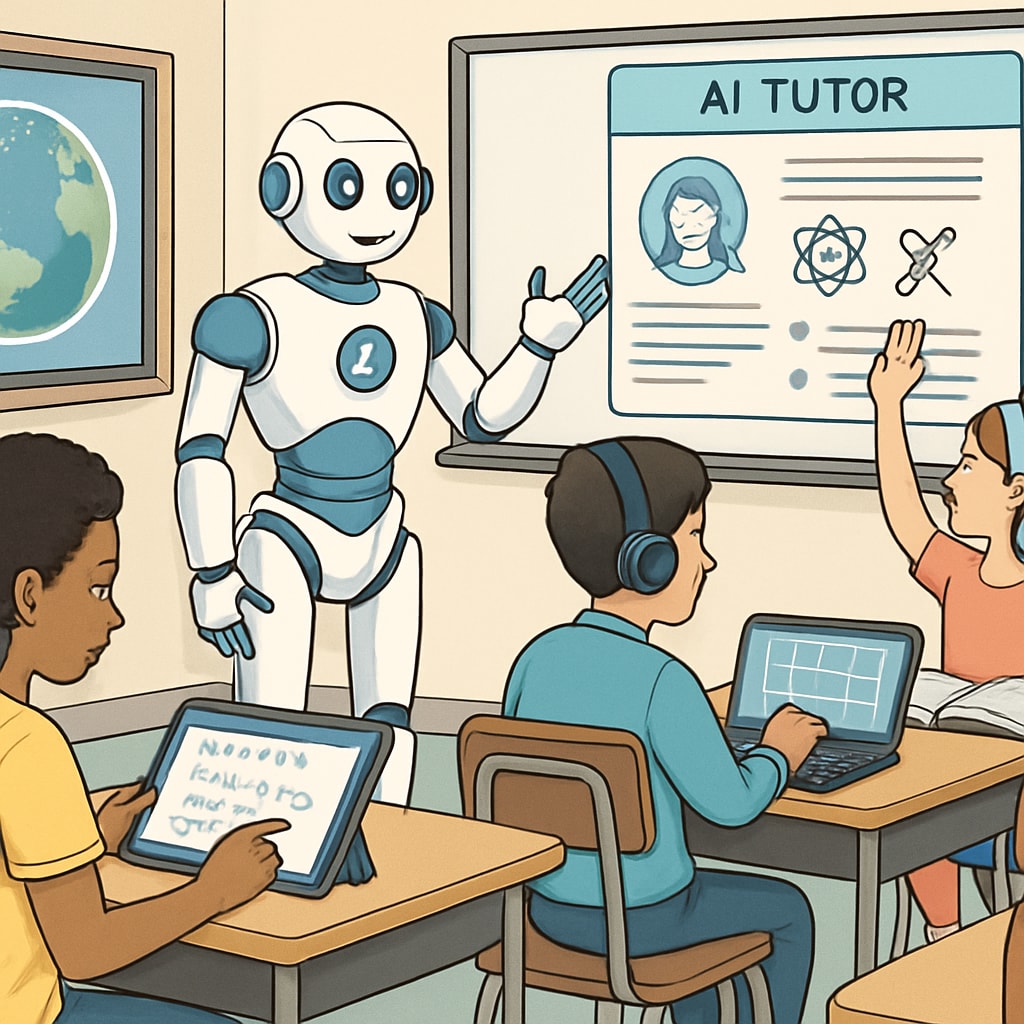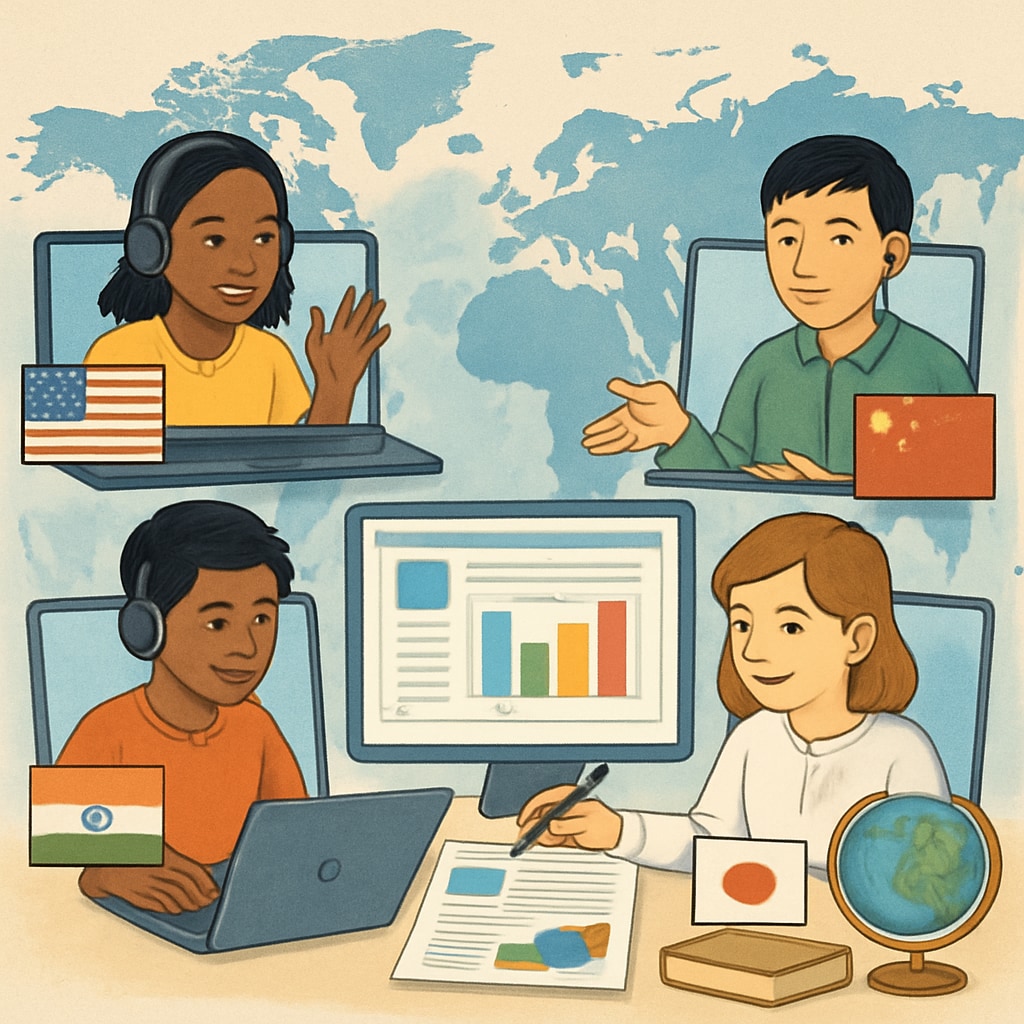The rapid evolution of artificial intelligence (AI) and the deepening impact of globalization are revolutionizing the education sector. By 2030, these forces are expected to redefine how knowledge is imparted, how educators and students interact, and how global accessibility to quality education is enhanced. This article delves into the transformative power of AI and globalization, offering a glimpse into the 2030 education future shaped by cutting-edge technologies and interconnected global networks.
How Artificial Intelligence is Revolutionizing 2030 Classrooms
Artificial intelligence is no longer a futuristic concept—it’s already being integrated into educational systems worldwide. By 2030, AI is expected to become a central pillar of education, transforming classrooms in the following ways:
- Personalized Learning: AI algorithms can analyze student data to create customized learning paths, catering to individual strengths and weaknesses. This ensures that no student is left behind while high achievers are continuously challenged.
- Automated Administrative Tasks: Teachers can save time on grading, attendance tracking, and lesson planning through AI automation, allowing them to focus more on student engagement and mentorship.
- Virtual Tutors and Assistants: AI-powered chatbots and virtual assistants can provide 24/7 support to students, answering questions, providing feedback, and even facilitating discussions.
For example, platforms like Khan Academy are already leveraging AI for adaptive learning, setting the stage for more advanced applications by 2030. The result is a classroom environment that is more inclusive, efficient, and tailored to the needs of both students and educators.

Globalization’s Role in Shaping the Future of Education
Globalization has been a driving force in connecting people across borders, and its impact on education is profound. By 2030, globalization is expected to enhance learning in several ways:
- Cross-Cultural Exchange: Virtual reality (VR) and online platforms will enable students to interact with peers from around the world, fostering cultural understanding and global citizenship.
- Access to Global Expertise: Online education platforms will bring world-class educators and resources to students in remote areas, breaking down geographical barriers to quality education.
- Multilingual Learning: AI-powered translation tools will make educational content accessible in multiple languages, ensuring that language is no longer a barrier to learning.
Organizations like UNESCO are already working to promote global education initiatives, and these efforts will likely expand as digital technologies improve. The result is an interconnected education ecosystem where students and teachers collaborate across continents.

The Evolving Role of Teachers in a Tech-Driven World
While AI and globalization are transforming education, the role of teachers remains irreplaceable. However, their responsibilities and skill sets are evolving:
- Facilitators of Learning: Teachers will transition from being knowledge providers to facilitators, guiding students through problem-solving and critical thinking exercises.
- Tech-Savvy Educators: Proficiency in AI tools and digital platforms will become essential for teachers, enabling them to integrate technology seamlessly into their lessons.
- Emotional Support Providers: As automation handles routine tasks, teachers can focus more on providing emotional and psychological support to students.
Therefore, professional development programs must adapt to equip educators with the skills needed for this tech-driven educational landscape. Collaboration between governments, tech companies, and educational institutions will be key to ensuring that teachers are prepared for these changes.
Challenges and Opportunities in the 2030 Education Future
Despite the exciting possibilities, the road to the 2030 education future is not without challenges:
- Digital Divide: Ensuring equitable access to technology remains a significant hurdle, particularly in developing regions.
- Data Privacy Concerns: The use of AI in education raises questions about the security and ethical use of student data.
- Resistance to Change: Teachers, parents, and even students may resist adopting new technologies due to lack of familiarity or fear of job displacement.
However, these challenges also present opportunities for innovation and collaboration. By addressing these issues proactively, stakeholders can create an educational environment that is not only technologically advanced but also inclusive and ethical.
In conclusion, artificial intelligence and globalization are set to redefine education by 2030. From personalized learning experiences to global classrooms and redefined teacher roles, the future of education holds immense promise. By embracing these changes and addressing the associated challenges, we can build an education system that prepares students for the complexities of an interconnected, tech-driven world.


